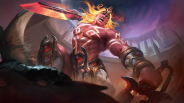Gym rats are a dime a dozen, proving that two-hour grinds at the weight racks are just a normal day. But, not everyone can have that same experience cramped into a sweat-stained room filled with individuals, especially in a time wherein Covid-19 still exists weightily on many people's minds.
Enter Supernatural. Based on Meta's Quest VR headset, among several varied fitness apps of the same ilk - but not exactly the same caliber - the gym VR experience brings all the right cardio and muscle training concepts that live in the gym to the comfort of your home. It's an interesting personalized piece of fitness training that breaks the mold. After all, we live in a world that considers the metaverse the next step of the internet, so why not try a light workout in this digital realm, as well?
Chris Milk, the creator of the Supernatural fitness VR program, specifically ensured that the gamified-like experience of gym-going was made to attract any and all kinds of individuals - not merely aforementioned gym rats or VR enthusiasts. However, the more people use the application and give feedback on various avenues still needing amending, the more Supernatural and Milk himself learn of the overarching necessities and updates that must go into it.
With these additive paradigms in mind, Supernatural itself shapes to the user's requirements. Milk notes all kinds of varied changes made over the nearly two years of its existence. One such evolution to the platform was a "no squat" mode, allowing for less friction for users who can't stand and sit and others. Supernatural developers have created similar concepts for individuals, such as a broader platform for people afraid of heights or a "front-facing" mode for those who have limited movement.
Related Article: Quest 2 Fitness Tracker Now Available on Apple Health
It also has a ton of workout regiments, with the goal of adding all-new training programs and formulas at each possible moment. The team added virtual boxing programs in October 2021 and is consistently looking for new and more exciting ways to engage their users. It also has a well-rounded team of expert coaches ready to assist all walks of the fitness realm in their quest to dominate their body and their mind.
One such coach brought on to the program was none other than an avid user, Chesney Mariani. To many, the heartwarming story behind the face proved convincing enough to simply join the Supernatural program, thus spawning one of the VR fitness app's most iconic members turned guest star coaches on the platform.
And it's here where the app truly shines. As Kevin Roose relays in his New York Times article dated the first of the year in 2021, "The best part about Supernatural is the coaches who lead each workout." Roose likewise notes the incredible settings made possible within the VR headset, citing a Beat Saber-like orb slashing workout "on the top of the Great Wall of China."
In that same article, Milk describes what separates his application from all the rest and even the real-world gym:
"The fundamental flaw of most fitness systems is that, at your core, you're doing something that is not fun, whether it's pedaling on a stationary bike or running on a treadmill. We use the tool of V.R. to transport you beyond the walls of your apartment and give you an activity that is intrinsically fun to do."
Supernatural's VR fitness memberships range from a monthly $19 fee to an annual $179, which honestly isn't quite bad when you look at most contemporary gym monthly memberships that often can cost anywhere from $50 to $200. Still, users will have to buy or already own Meta's Oculus Quest headset, which sits at a $300 price point. Not exactly cheap, but it may well save you money in the long term and afford you a much more worthwhile workout regiment in the form of a gamified experience.
ⓒ 2025 TECHTIMES.com All rights reserved. Do not reproduce without permission.
![Best Gaming Mouse For Gamers With Smaller Hands [2025]](https://d.techtimes.com/en/full/461466/best-gaming-mouse-gamers-smaller-hands-2025.png?w=184&h=103&f=6fd057ef777bd39251d4e7e82e9b23f1)



![Best iPads that Students Can Use in School [2025]](https://d.techtimes.com/en/full/461431/best-ipads-that-students-can-use-school-2025.jpg?w=184&h=103&f=516289300e12e9647ef3d5bd69f49b70)